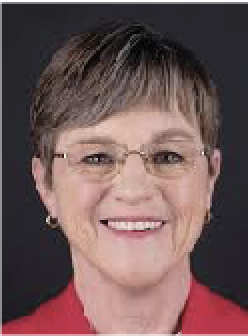AARP Kansas believes that expanding Medicaid (KanCare) is the most critical thing lawmakers can do for older Kansans when they convene in Topeka on Jan. 14. Expansion would provide health insurance to more than 150,000 Kansans who cannot afford coverage, including approximately 20,000 Kansans age 50-64 years old and about 7,400 uninsured military veterans and their spouses. These Kansans fall into a coverage gap: They earn too much to qualify for KanCare, but too little to be eligible for financial help to buy private insurance. Several plans to expand Medicaid are being proposed and will be debated in the upcoming legislative session.
AARP is also concerned about the shortage of health care providers in our state. Six of our state’s 105 counties have no physician and 18 counties have only one physician. This causes a hardship for Kansans of all ages, but particularly for those age 50 and over who tend to use health care more than any other age group. One solution to this problem is to allow nurse practitioners and all advanced practice registered nurses (APRN’s) to have full authority to heal. Currently, APRN’s who have advanced education in areas of primary and preventative care must function under the auspices of a practicing physician. House Bill 2412, which was introduced during the 2019 legislative session, would help eliminate current barriers that prevent APRN’s from filling gaps caused by the physician shortage.
Another area of concern is the lack of retirement savings held by Kansas workers. With workplace pensions almost non-existent and 401ks unavailable to many, Kansas workers are not preparing for retirement. About 42 percent of Kansas’ private sector employees—roughly 423,000 individuals—work for an employer that does not offer a retirement plan. A proposal such as a workplace retirement savings plan could help workers save money directly from their paychecks and take that savings with them when they change jobs. This program would be similar to the Kansas 529 college savings plan.
AARP is also extremely focused on common sense solutions to the high cost of prescription drugs. In Kansas, the average annual cost of prescription drug treatment increased 57.8 percent between 2012 and 2017, while annual income for Kansans only increased 12.5 percent. The high cost forces many Kansans to choose between buying medications and other essential like housing and food. While proposals are working their way through Congress to deal with high prescription drug costs, it’s important to work on these issues on the state level as well. AARP is looking into proposals for increased transparency by drug manufacturers in the cost of drugs and revenues that exceed a predetermined threshold and establishment of a drug price affordability review board that would give the state the ability to limit how much its residents pay for certain high-cost drugs.
Other important issues that would help Kansans have the option of remaining in their homes and communities are support for caregivers, both at home and in the workplace, and affordable utilities. AARP will continue work to support family caregivers and their loved ones by advancing laws concerning employment sick leave benefits and the care of family members, as well as fight to ensure families have electric, gas, and telephone services they can count on, especially during extreme weather and other emergencies.
If you are interested in becoming an advocate on these issues and others that may arise during the 2020 legislative session, consider joining our advocacy volunteer team. The AARP Wichita Advocacy Group meets the 3rd Wednesday of each month to discuss local, state and national issues. Call us at 866-448-3619 or e-mail us at ksaarp@aarp.org for more information on how to get involved, use your skills and talents and make a difference in your community and state.
Mary Tritsch is associate director for communications for AARP Kansas.









